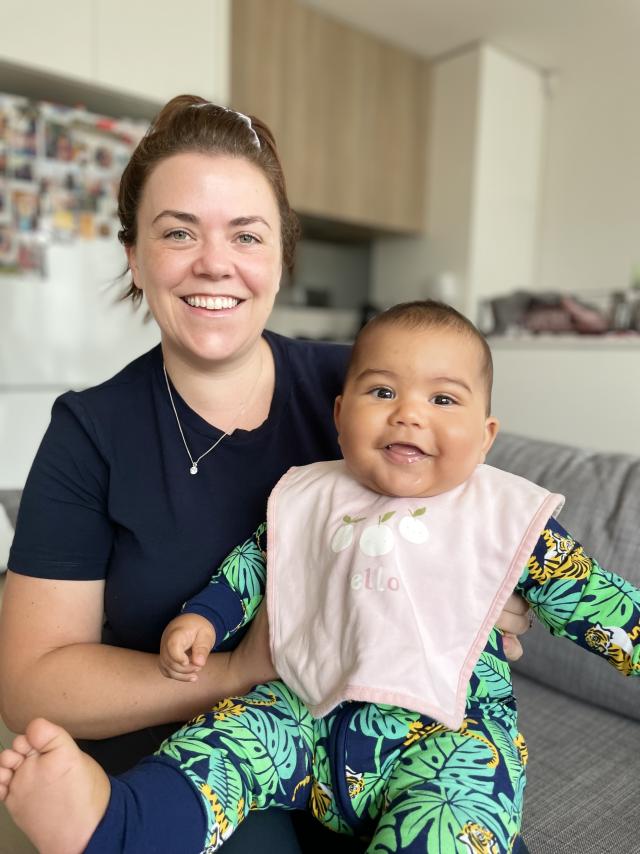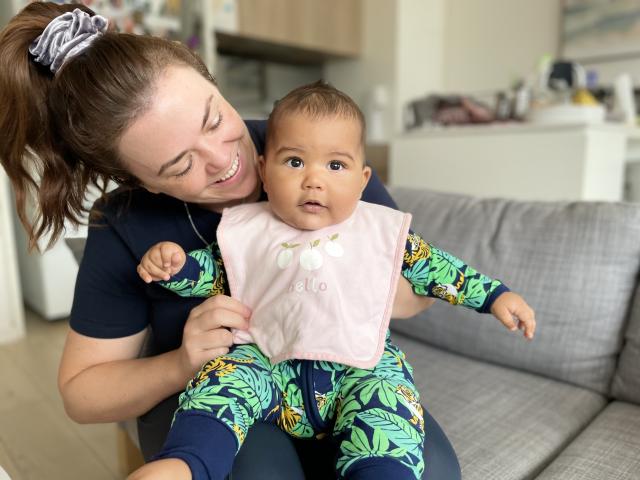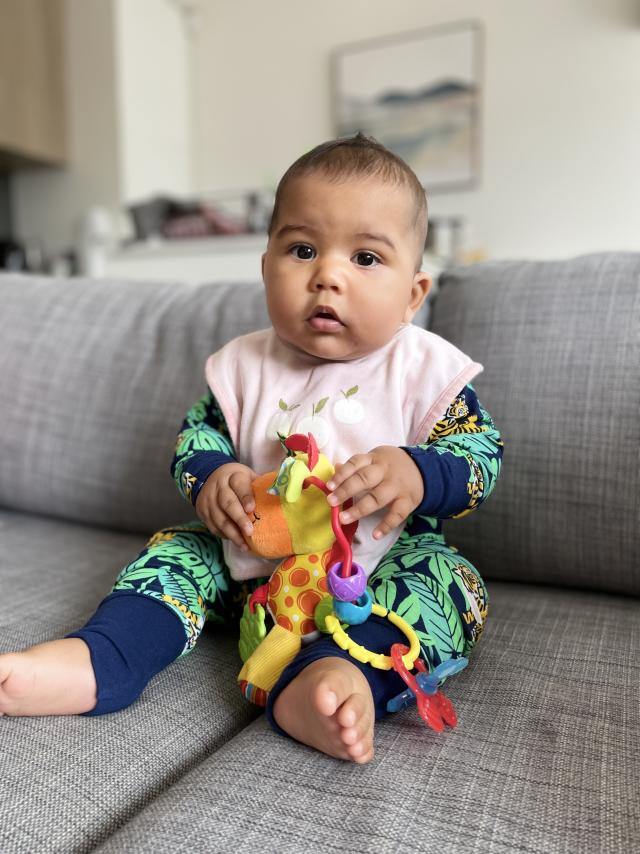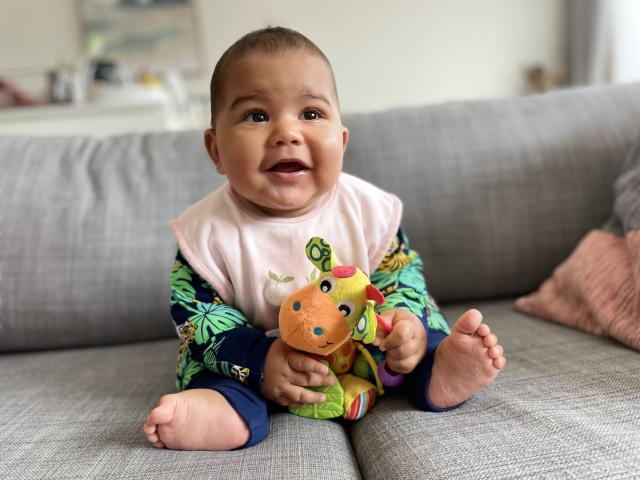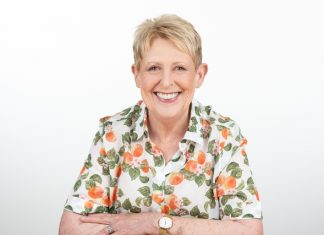By Casey Neill
Ruby Crane’s journey to motherhood was “36 months of awful”.
The Braybrook nurse and husband Shermal had a hard time falling pregnant, trying for a year before seeking help from specialists.
Her mum and sister had no trouble conceiving, and Ruby had no reason to think she’d struggle.
But doctors discovered she has the celiac gene, despite showing no symptoms of the autoimmune condition.
“Whenever something foreign comes in, your body is really toxic to it,” she said.
So she cut gluten from her diet.
Scans, ultrasounds, pills, injections and IVF followed, a process Ruby described as “traumatising”.
From tube flushing to egg testing – it’s not how she thought she’d become a mum.
Many external factors triggered a flood of emotions along the way, with Mother’s Day atop the list.
“It’s the worst day,” she said.
“I think that would be the peak of the worst day for people who are trying.
“I think people need to be more sensitive.
“But going through it makes you have a much greater appreciation for other things and makes you take a step back.
“There are much bigger things to give a s*** about.”
When Ruby finally fell pregnant with son Gabriel, who was 8 months old when we spoke, she didn’t share the news on social media.
She could too easily imagine herself on the receiving end of similar posts just a few months earlier.
Four friends fell pregnant while she was battling infertility.
“You don’t feel like a woman, you don’t feel feminine. You feel that you’ve failed somehow,” she said.
“It’s like you’re a kid and there’s a club and you’re not in the club. You’re the kid standing outside.
“It’s a real silent thing. It’s a hidden shame of women.
“It probably needs to be more openly discussed.
“When I did talk about it, the majority of the people were struggling but nobody wanted to talk about it.”
She put miscarriages in the same basket as infertility.
“No one talks about it, ever,” she said.
“But maybe that’s how they’re comfortable dealing with it.”
Ruby had always assumed she’d become a mum one day.
“I think it’s like a rite of passage,” she said.
“I don’t know if I had a maternal instinct to want to do it.”
She finally welcomed Gabriel via emergency cesarean 72 hours after her waters broke – and then parenthood enveloped her and Shermal.
“It was strange. We were not really there but we were there,” she said.
“It was really overwhelming.
“The time went so quickly between naps, you couldn’t do anything.
“I was really pissed off that everyone focuses on the birth.
“There’s way more other things.
“They made it out like the birth was going to have some physical and mental effect on their life.
“They’re fine – it doesn’t matter how they come out.”
Ninety-minute breastfeeds, the constant stream of nappies…
“No one tells you any of this stuff,” she said.
“Why is the feeding taking so long? I thought it would be five minutes.”
Shermal is also a nurse and they both thrive on schedules.
“Babies don’t have a schedule,” she said.
“They’re constantly unstructured and consistently inconsistent.”
Ruby said becoming a mum was “pretty much the hardest thing you ever do in your life”.
“It’s a lot of pressure on a relationship. I can see now how people break up,” she said.
“It really defines you. It takes over your entire life.
“The second you think you’ve got it sorted, the four-month sleep regression hits.”
But when Gabriel wakes from his nap and Ruby sweeps him up in her arms, her joy is obvious.


